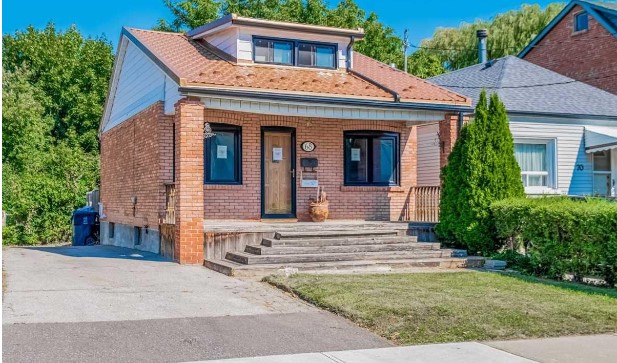Latest Articles
Unlocking Financial Freedom: The Guide to Passive Income Rental Property
Introduction to Passive Income through Rental Property

The allure of establishing a steady stream of revenue without the daily grind is a dream for many, which can be actualized through a passive income rental property. This concept involves purchasing or owning real estate that is rented out to tenants, thus generating a regular income. With the right property, location, and management strategy, a rental property can be an effective way to secure long-term financial stability. For those seeking to diversify their investment portfolios, passive income rental properties offer a tangible asset with the potential for both rental yields and appreciation over time.
Sponsored by:

Claudio Baiocchi
Broker
RIGHT AT HOME REALTY INC.
Let me use all my experience to get you the ideal income property
Benefits of Investing in Passive Income Rental Property
Investing in a passive income rental property comes with a myriad of benefits that can contribute to an investor's financial health. Primarily, it provides a stable source of income that could potentially cover the mortgage and any associated expenses, with the surplus being profit. Owning real estate also opens the door to tax advantages, including deductions for mortgage interest, property tax, operating expenses, and depreciation. Moreover, as the property appreciates in value, it bolsters one's net worth. All these perks reinforce the appeal of rental properties as a cornerstone of a passive income strategy.

Finding the Right Property for Passive Income
The success of a passive income rental property hinges on selecting the right property. Investors should conduct thorough market research to identify areas with strong rental demand and potential for growth. Key factors to consider include neighborhood stability, access to amenities, employment rates, and local crime statistics. The condition of the property is equally important. A turnkey property might demand a higher investment but can immediately generate income, whereas a fixer-upper could offer a lower entry point but require additional time and resources. Balancing cost, location, and potential returns is critical to identifying a property that will contribute to a lucrative passive income stream.

Strategies for Managing Your Rental Property
While 'passive' suggests hands-off involvement, a passive income rental property does require some level of management to ensure it remains profitable. Landlords can choose to be as involved as they wish, from managing the property themselves to employing a property management company. Self-management allows one to save on fees, but it demands time and understanding of landlord-tenant laws. On the other hand, a property management firm can handle everyday tasks like maintenance requests, rent collection, tenant screening, and legal issues. The approach an investor selects will depend on their willingness to be hands-on and the time they can allocate to property management.

Financial Considerations for a Passive Income Rental Property
To transform a rental property into a source of passive income, financial planning is essential. Investors need to account for all potential expenses, including mortgage payments, property taxes, insurance, maintenance, and emergency repairs. Setting aside a fund for unexpected costs can prevent financial strain. It's also important to understand the local rental market to set a competitive yet profitable rent price. Implementing strategic rental increases in line with market conditions and lease renewals can help keep income consistent with or above inflation rates. Effective financial management ensures that a rental property remains a robust source of passive income.

References
Powered by:
This REALTOR.ca listing content is owned and licensed by REALTOR® members of The Canadain Real Estate Association
The trademarks REALTOR®, REALTORS®, and the REALTOR® logo are controlled by The Canadian Real Estate Association (CREA) and identify real estate professionals who are members of CREA. The trademarks MLS®, Multiple Listing Service® and the associated logos are owned by The Canadian Real Estate Association (CREA) and identify the quality of services provided by real estate professionals who are members of CREA. The trademark DDF® is owned by The Canadian Real Estate Association (CREA) and identifies CREA's Data Distribution Facility (DDF®)



